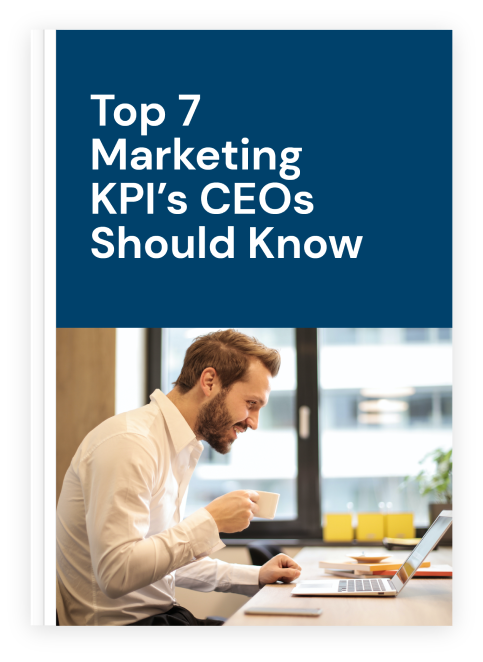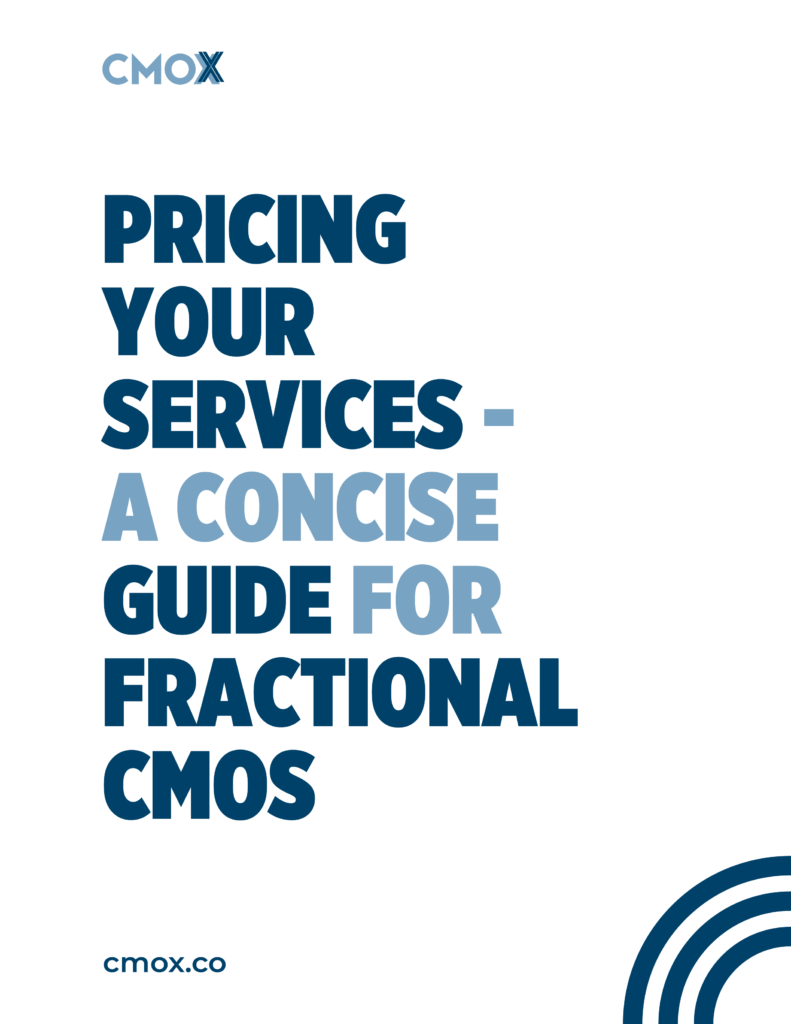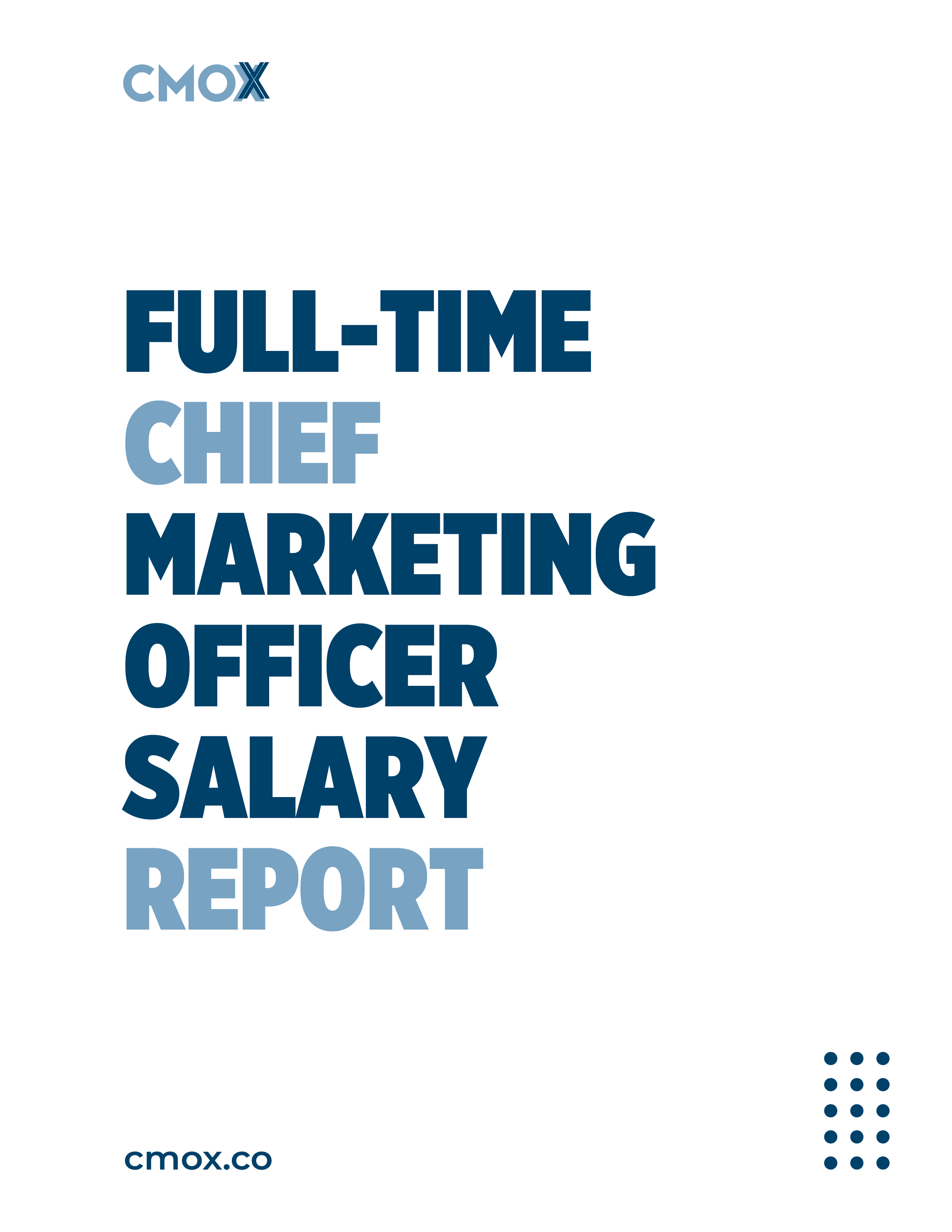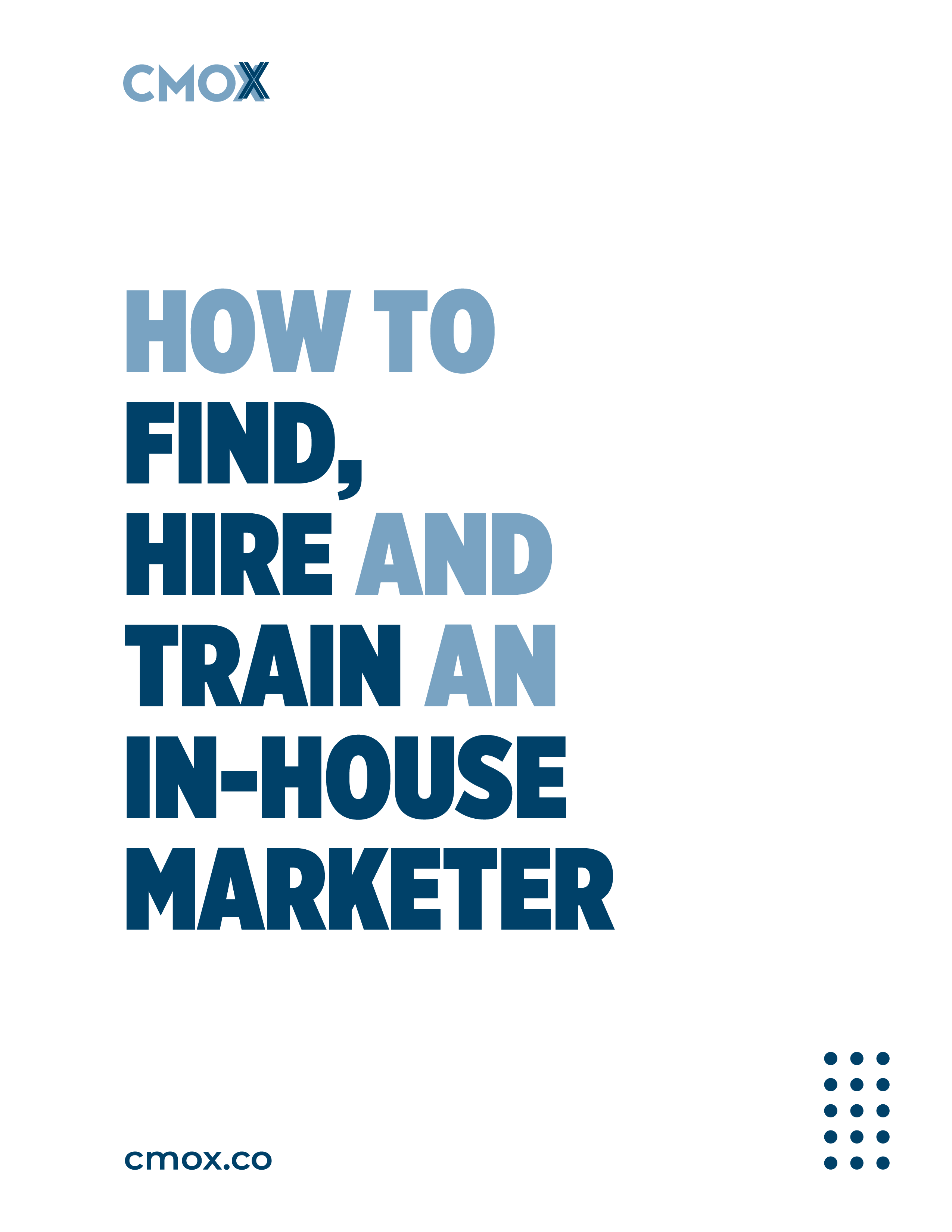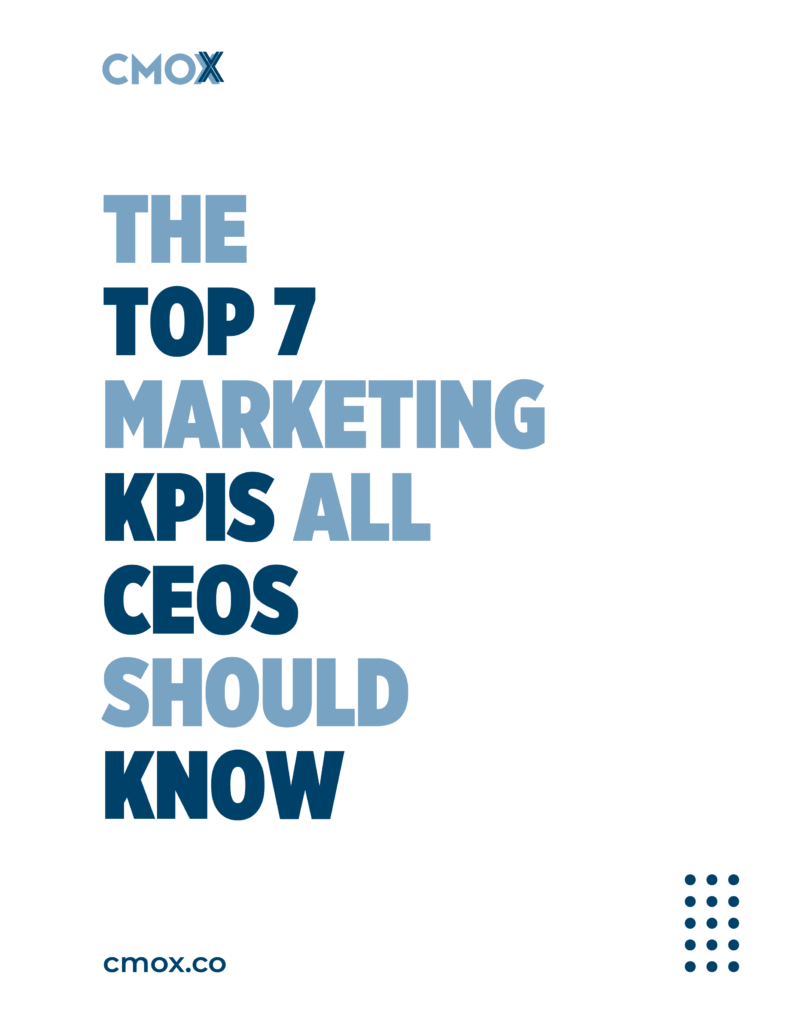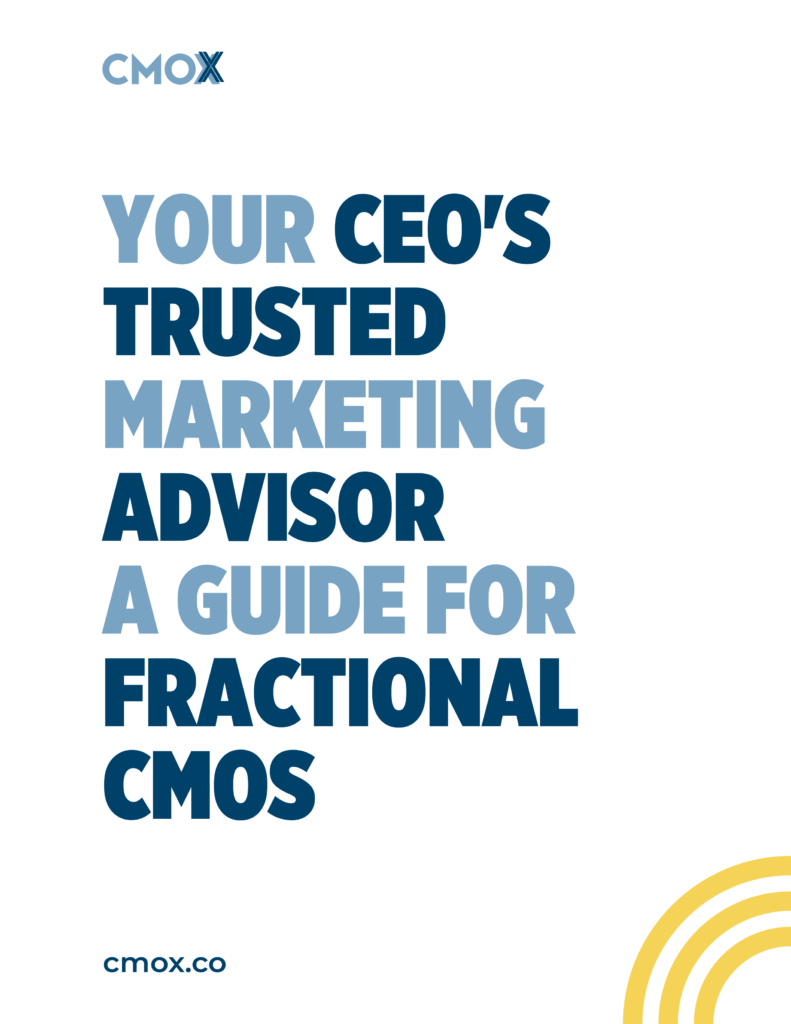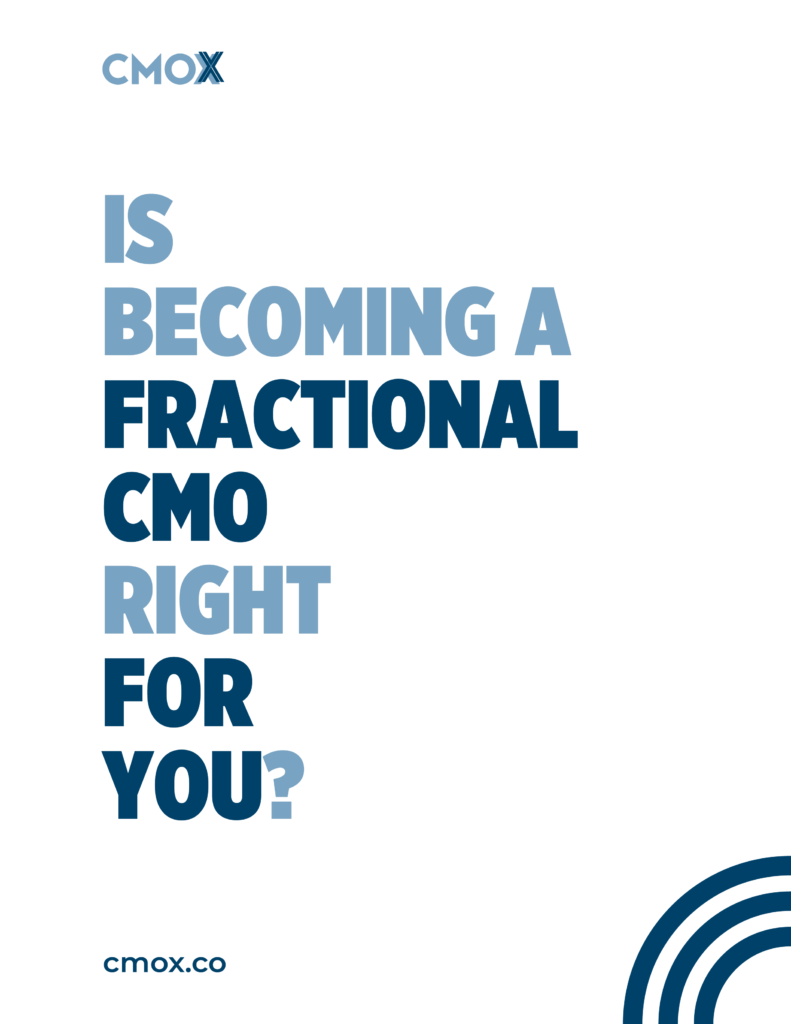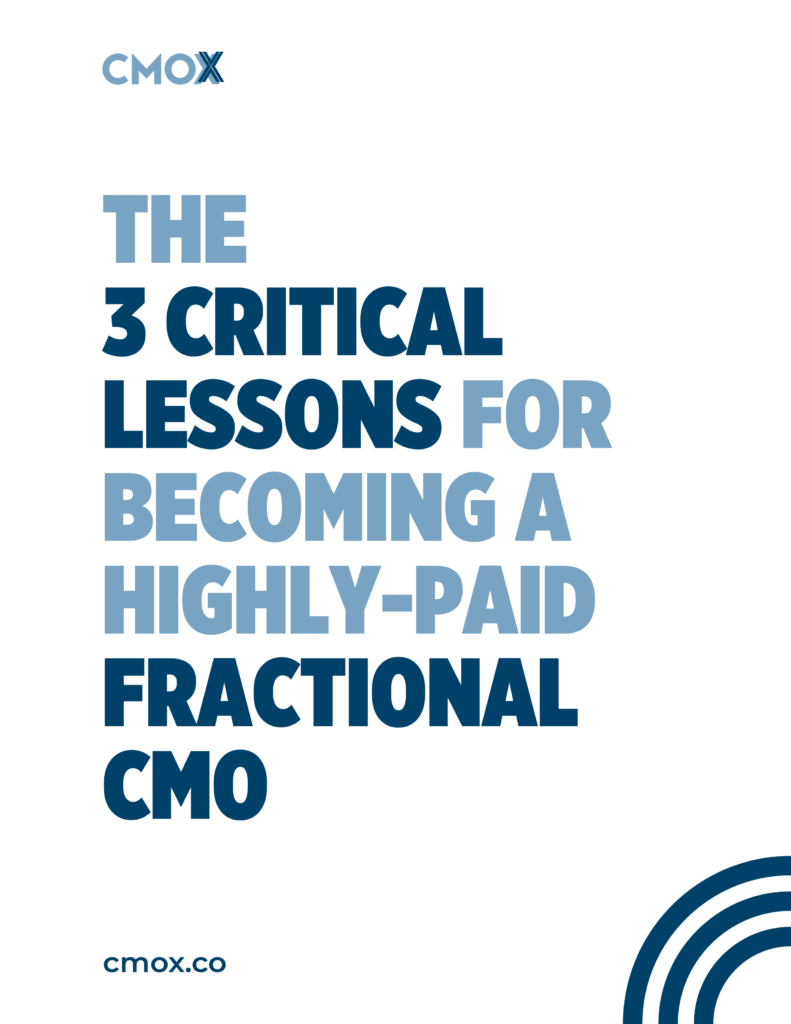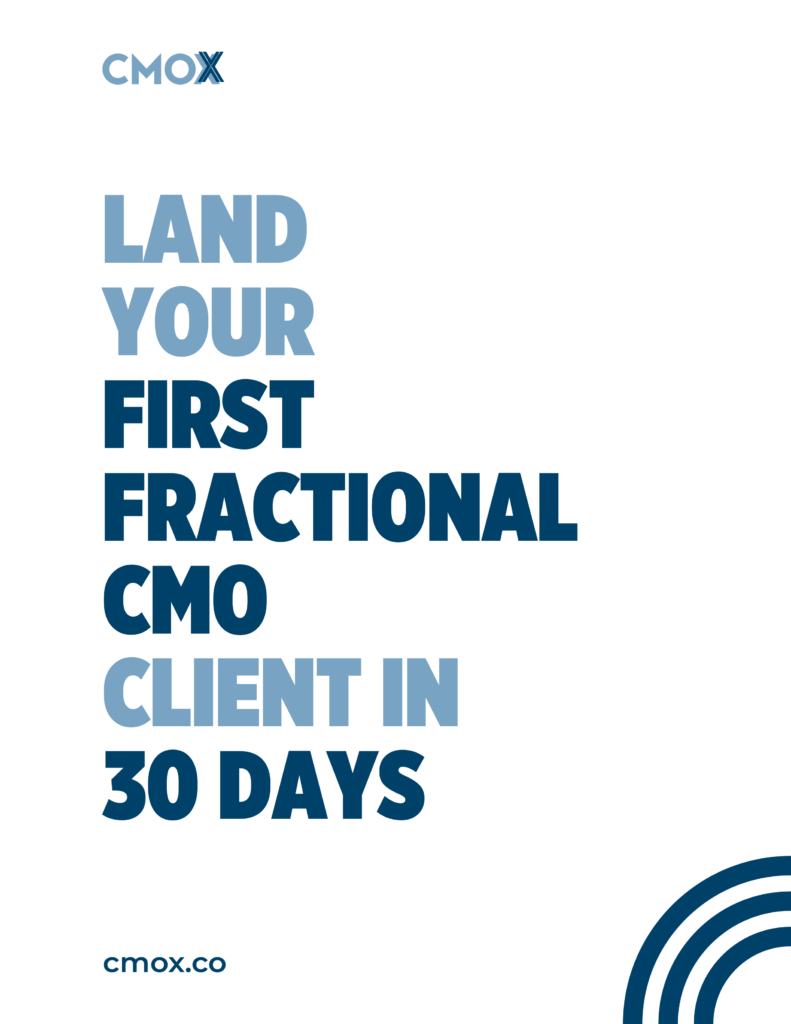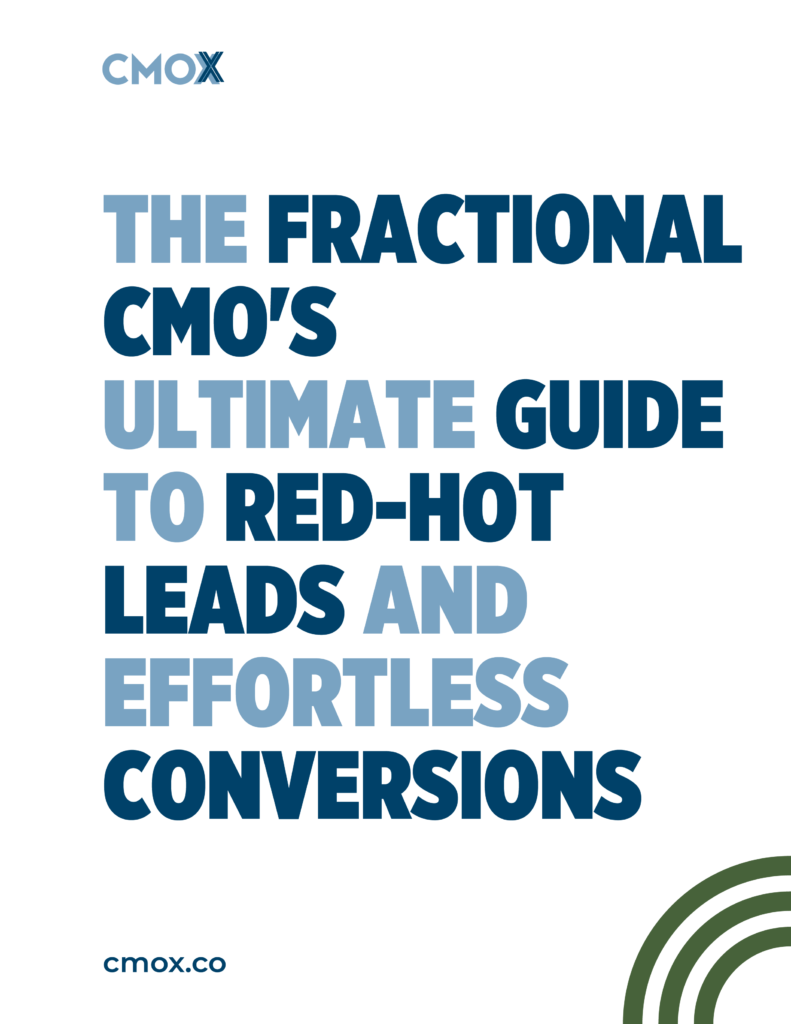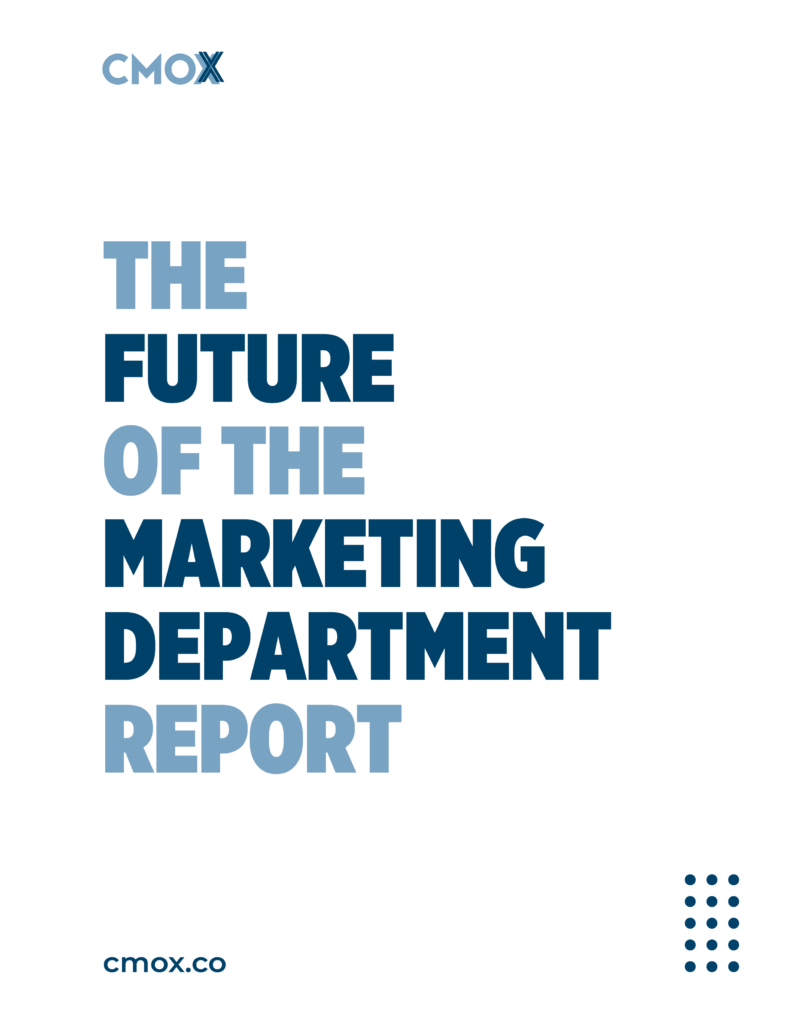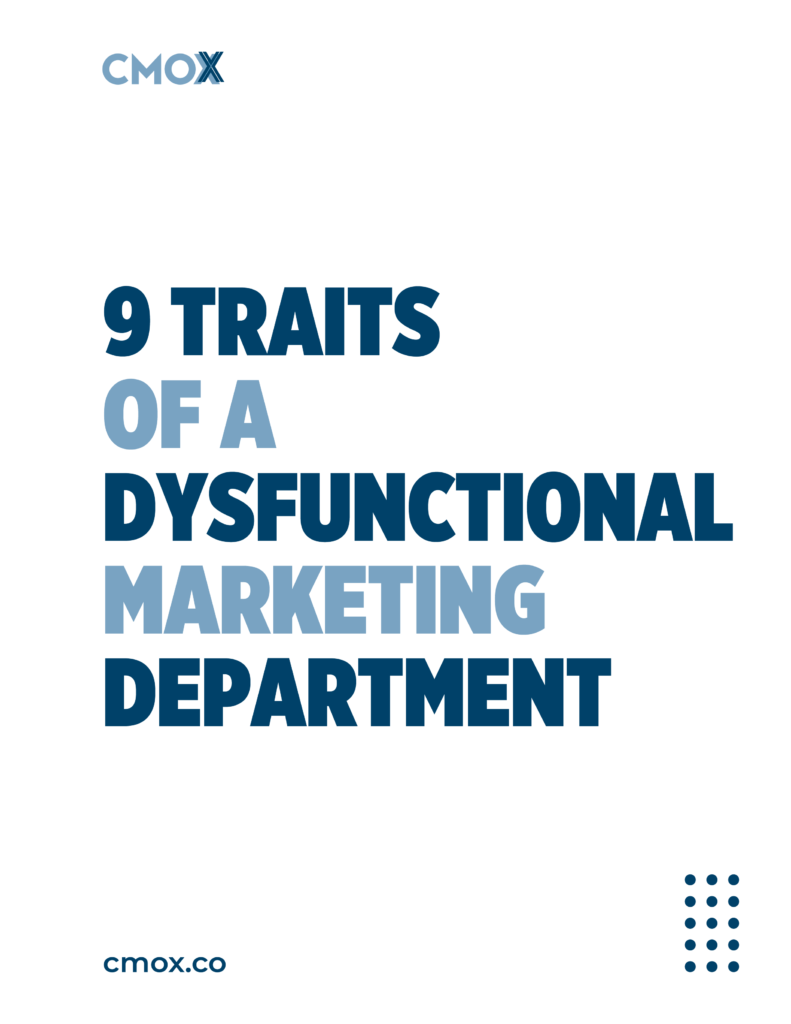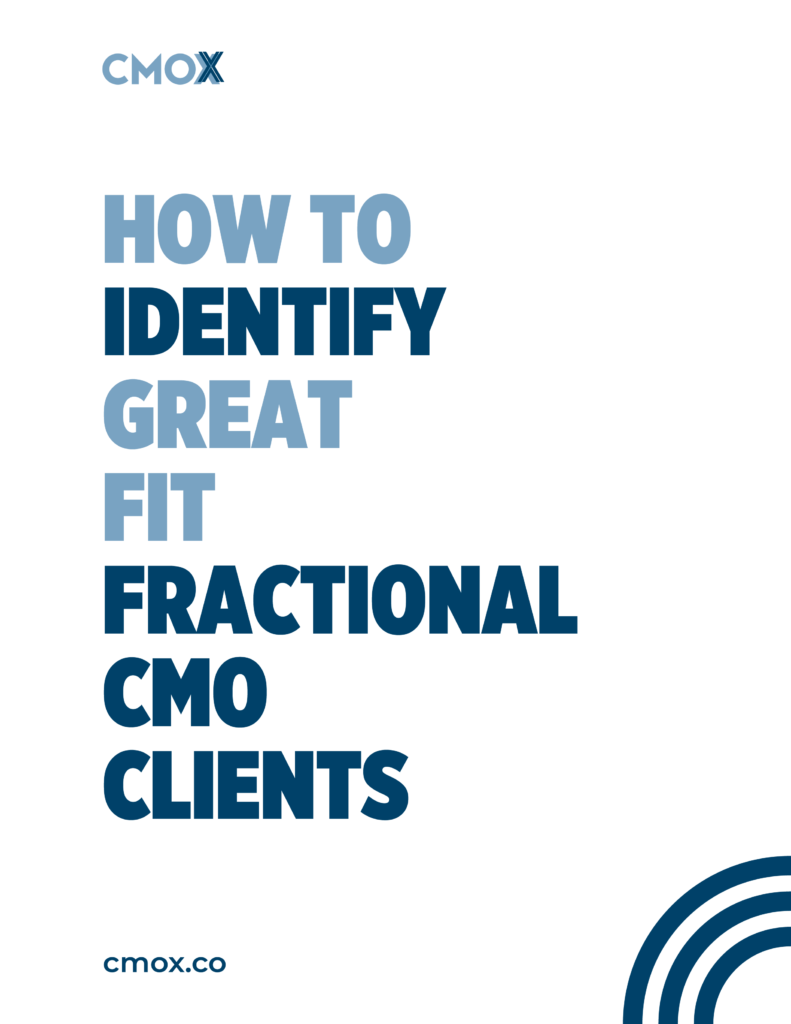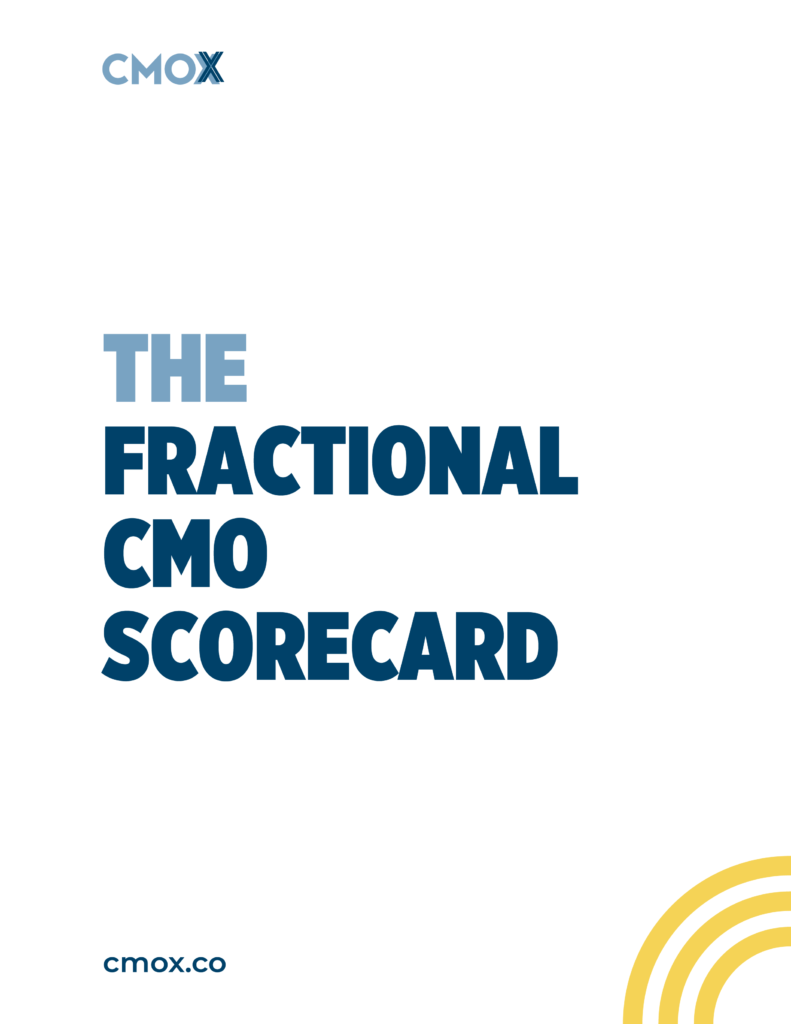Ep #103: Your Mantra for More Opportunity

In this solo episode of The Fractional CMO Show, Casey Stanton shares a life-changing mantra that will transform how you approach business development: “You’re prospecting forever.” Drawing from personal stories—from grueling mountain hikes to backyard landscaping projects—Casey reveals how adopting a “forever” mindset can help fractional CMOs build resilience, consistency, and long-term success. If you’ve ever felt frustrated about finding clients or thought you’d eventually be ‘done’ with prospecting, this episode is your wake-up call.

Episode highlights:
In this solo episode of The Fractional CMO Show, Casey Stanton shares a life-changing mantra that will transform how you approach business development: “You’re prospecting forever.” Drawing from personal stories—from grueling mountain hikes to backyard landscaping projects—Casey reveals how adopting a “forever” mindset can help fractional CMOs build resilience, consistency, and long-term success. If you’ve ever felt frustrated about finding clients or thought you’d eventually be ‘done’ with prospecting, this episode is your wake-up call.
🔑 Key Topics Covered:
- Casey’s personal stories that sparked the mantra “we’re just hiking forever” and “we’re just digging forever”
- Why prospecting is a non-negotiable, ongoing activity for every successful fractional CMO
- The hidden danger of relying on a single contract or client
- How venture capitalists and top business leaders keep their pipelines open
- The full spectrum of prospecting—from cold outreach to being paid to take meetings
- Why you should never “graduate” from prospecting, no matter your level of success
- Real-life example of a CMO navigating client loss while raising rates
- How obsession with conversation and outreach leads to bigger, better opportunities
- The importance of solving higher-level problems with ideal clients
- Building a life of freedom, impact, and income through relentless prospecting
Transcript:
00:00:00 Casey: In this episode, I’m gonna talk to you about a mantra that you ought to adopt for the rest of your life when it comes to business and why it matters to never give up on this one thing. Let’s go!
00:00:11 Casey: Marketers of the world, why do we work hard to solve small problems? Why do we reinvent ourselves and our clients over and over? And why are we giving away marketing strategy for free? With advancements in AI, we’re all seeing the marketing department shrink from the bottom up and companies need you to serve them as their fractional Chief Marketing Officer. It’s time to solve bigger problems and bring home a bigger paycheck. It’s time to create the lifestyle we deserve and to make a greater impact. This is the Fractional CMO Show and I’m Casey Stanton. Join me as we explore this growing industry and learn to solve bigger problems as marketing leaders. The Fractional CMO Show is sponsored by CMOx, the number one company to teach you how to attract, convert and serve high-paying fractional CMO clients on your terms.
00:01:08 Casey: Hey, it’s Casey. Let’s dive in. So I want to tell you a few years ago, I went up to the White Mountains of New Hampshire and I flew in with a pack, walking poles, a tent, sleeping bag, some cutlery and a really nice coffee setup. You know, that was my one luxury thing. And I met up with some guys, only one of whom I had any relationship with before. And we jumped into some pickup trucks and drove out to the mountains, parked the car and went for a walk. And that walk lasted six days. And during that walk, it was like a men’s group retreat, right? It was just like a long hike together with dudes I didn’t know. And it was, it was really a wonderful time. ‘Twas with a buddy of mine, Mike Cashew, he hosted it.
00:01:58 Casey: And he’s got something called soul seeking adventures. And that’s who I went with. And while I’m out there, we’re hiking hard and long. It’s part of the Appalachian Trail. We’re trying to summon a mountain. We’re just doing a lot of hiking. And I kind of trained beforehand, but I was pretty tired. You know, the first day I was doing great, I was kind of leading the pack. And by like the third day, I was definitely at the back of the pack. And then we had our big summit and our summit was a scramble.
00:02:28 Casey: Instead of just like hiking, it really was like kind of crawling up the side of a mountain. Later, did I find out that they chose the most difficult path up that mountain, which was good. It was a very difficult path and a lot of fun. During the time we had no technology, you know we weren’t really encouraged to bring books or anything. They kind of kept in touch with the outside world. We just had notebooks and just went into. kind of be quiet and introspective and kind of work through some stuff. And I got to do this personally just before my daughter was born. It was like a nice little event for me to kind of reset before I had a daughter. And on that hike, up that summit, up that scramble where I’m almost like climbing up, almost on my hands and knees. I mean, it was so vertical. I just turned to Mike and I said, “Man, like, how are you doing this? Like, what, what are you saying in your head?” And he was like, “Oh, it’s easy. We’re just hiking forever. That’s it. We’re just hiking forever.” And it’s just like, oh shit, that’s the thing. Like that’s what I was missing. We’re just hiking forever.
00:03:39 Casey: So like, what’s the use in complaining? What’s the use in, you know, being frustrated? What’s the use in counting down or counting up? How many steps have I done? How many miles have I done? What’s my elevation gain? What are my calories? We’re just hiking for forever. We’re just hiking forever. It’s a great mantra. You might also know if you’ve listened to some episodes that a couple of years ago, my wife and I bought this hundred year old house. And one of things that we’re doing to get her all spruced up for her hundred year birthday, which is this year, is we’re redoing the whole backyard. And we’ve got some limitations into the backyard, namely a beautiful copper beach tree that blocks access to the backyard from any heavy machinery. I wouldn’t dare run any skid steers or anything over the roots of that. So instead we just have to like manually do all the grading of the backyard ourselves. Just real quick, the land from our neighbors kind of slopes down towards our house. And as a result, water hits the foundation of our house, gets into the basement. Obviously not good.
00:04:39 Casey: So what do we need to do? We needed to reverse the grade. So we needed to drop the land to level and then actually cut it down so the water runs away from the house. And we’re on about a quarter of an acre. So it’s a significant amount of land to do with a shovel. And, you know, I’m out there just shoveling away, just, you know, one shovel at a time. Some of the dirt’s really compacted and I have to drive a spade in it just to break it up and then shovel it into a wheelbarrow and then take it to the front yard and dump it. And it’s been a lot of labor.
00:05:09 Casey: Why do I tell you this? Well, ’cause the mantra that came up to me is, oh, I’m just digging forever. I’m just digging for forever. And when that came to mind, it just turned everything around. It’s like, oh, I don’t have to count how many more, you know, I don’t have to like estimate, okay, based on the parcel of land that we have and the seven cubic feet that the gorilla handcart can hold, you know, how many handcart fulls do I think I’m gonna have to remove and how many I do today and how many more days of this do I have to… I didn’t even have to play that game. Just as like, oh yeah, I’m just digging forever. And it made it really an enjoyable process. So that was like very difficult, you know, very physically demanding. And it took six weeks or so to do six weekends, kind of all in. And even right now, as I record this, the back here, it’s just a big old beautifully graded dirt lot. We got to move pretty quickly here into composting and sodding it.
00:06:03 Casey: So what, what does this mean for you? Well, as a fractional CMO, what are you doing for forever? You’re prospecting for forever. That’s it. You’re prospecting for forever. Some people think it’s binary. They’re like, okay, I’m going to prospect. If I have like five conversations with people that I know, I’m going to get maybe like five calls with potential customers and like, maybe I can close one of those. So it’s going to take me 10 calls before I make money. Okay, and then I’m done, and then I can just relax. I don’t have to prospect anymore. It’s like, no, that’s not it. You’re prospecting for forever. That’s the secret. And I want to tell you how other people prospect, they prospect a little differently. They prospect maybe in a more high level way, but the best in business continue to prospect.
00:06:51 Casey: So let me give you a couple examples. Well, I guess first, let me give you a caveat. We’ve got a member, great member. He’s done… he’s been very successful as a fractional CMO. And I just found out yesterday that he said that he’s likely gonna lose a client. He said it’s not of his own, you know, not because he did anything wrong with the client. The client’s like, we actually love you, but we can’t handle the demand. Long story short, it is a son taking over a father’s company and the son just doesn’t get it yet. And he’s struggling to wrap his arms around the operations of the business. He’ll figure it out, but it might take him a year to figure it out or two years. And that doesn’t really make sense to keep marketing spinning so high while that’s happening. So, one lesson in that is the CMO said like, maybe I can introduce you to an operations consultant and, you know, help you kind of get focused on that. But the CMO never offered to like fly in and do the work for them, which I think is good. The CMO should CMO and not COO.
00:07:57 Casey: The CMO also said that he was going to continue prospecting. He’s like, I’ll probably lose this person. Yeah, he probably will, right? Maybe he’ll be able to keep it for another month or two, maybe stretch it out three months, who knows? Maybe he’ll be able to drop down to a lower service level, you know, he’ll get crafty to figure out a way to maintain the relationship, because it’s always tough to come back after the contracts over. I’d rather have continuity than to be done and like, with, with maybe like the tacit promise to work with the client again in six months, because it often feels like that never happens. So the CMO is choosing to continue to prospect, which is the right move. And when I asked that, I was like, “Well, are you going to charge the same?” He’s like, “No, I’ll probably charge more.” So he’s gonna increase his rates. He’s gonna cycle out a client and then just increase his rates. And he can do that with a level of confidence because he’s continuing to prospect. He has good people in front of him. He knows he can do it. He’s prospecting, always be prospecting. So important.
00:08:53 Casey: Let’s talk about venture capitalists or private equity folks. They are some of like, I think generally the smartest people in business, you know, like very smart, they just understand how the world works in a very deep way. And their, their, their value in the VC firm, for a lot of them is to originate business. They want to find the new place to invest, right? They want to bring in this new potential investment partner or, you know, company to invest in. So they need to keep their opportunity pipeline open. So they’re going to be available to prospect as well. That’s why you see some of these folks on things like X, Twitter, right?
00:09:35 Casey: They’re talking and they say like, DMs open. You can DM them. They’re not going to read some long sob story, they’re going to read two sentences from you and either act on it or not. You’re welcome to email them and do the same, right? They’re going to be available for conversations, but maybe the conversation length with them is five minutes. You can get five minutes with a venture capitalist or five minutes with a private equity managing director, managing partner or whatever.
00:10:00 Casey: It’s not a lot of time, but they still continue to prospect, they’re doing it in their own way. Maybe you know the website intro.co. It’s a cool one. It’s a fun one to shop on intro.co you can go on and find folks. So I pulled it up and I was looking at it before I started recording this and I can just see folks in, business and career. These are top experts. So Alexis Ohanian is one of the co-founders of Reddit, just, a pretty smart dude. You can go book a session with him and his session is $2,000 for, let’s see, 15 minutes. You want to go talk to him? I can talk to him in one month, he’s available for 15 minutes for two grand. And then he’ll donate that two grand to a non-profit. Why would he do that? Because he knows the value in like keeping his door open for the people who are legitimate.
00:10:58 Casey: Andrew Chen? He’s a GP at Andreessen Horowitz. I mean, it’s incredible. He’s $2,500 a session. And it’s showing right now that his 15 minute session has a waitlist, so he’s fully booked out. But how cool is that? So these top investors are top rate, but they still have availability to have conversations. They’ve got to spun it to say like, they’re gonna always be prospecting, but they’re actually gonna turn prospecting around and have you pay them to listen to the pitch. It’s pretty cool. And I know that generally they say like, don’t pitch me on the call. But I believe in a lot of ways that like, yeah, these folks on intro are trying to give back and help people out and all that. But also they’re like always looking for alpha, always looking for Intel, opportunity, right? It could be the thing that really helps them out.
00:11:54 Casey: I’ve got a mentor of mine. His biggest line item budget next to like marketing and staff is Masterminds. He’s always going to Masterminds. He knows one deal from one mastermind per year, could pay him a million dollars extra in revenue, maybe even a million dollars extra in profit. So just being in the room with other people is a way to keep the opportunity open. So we can look at prospecting as a strata or as a continuum. On one end, it’s like cold outreach to strangers, to people you don’t know. And on the other end, it’s charging a fee to have a conversation with somebody who wants to talk to you. That’s the full spectrum. And where are you in that spectrum? I am not too proud to do cold outreach. I still do it every single day. I love cold outreach. I love the opportunity. Like I really love it. It’s fun for me. I love the opportunity to meet new people, people that I would never otherwise meet. I don’t travel a ton. I work from home. I spend a lot of my time with my family, with my kids, hiking, right? I don’t go to business events all the time. I’m not meeting these folks.
00:13:11 Casey: So cold outreach is a method to talk to people. It’s great. I just don’t want you to think that you’re going to arrive at the point where you never need to do any kind of prospecting again. I want you to always be prospecting. It’s the solution. The people that are hurt the most are the ones that win. Like this is the most dangerous tale. Full-time employee decides to leave, lets a couple people know. Someone says, hey, we’ll hire you. With a direct contract, we’ll do a two year contract. You’re like, sweet. They get it signed. It’s a month to month contract with a tacit agreement for two years, two months into the agreement, after the employee left the job full time, they’re two months into a two year, but month to month contract. And then the company says, hey, we had a budget change. We got to pull back. We’re not going to be able to work with you in the third month.
00:14:03 Man, does that happen? I see it happen and I just hate to see it. These employees who think that they just have like those golden ticket, lose it. And because they’re not prospecting, there’s nothing that they can do to win that business back fast. So the goal for you is to always be prospecting, always be in the middle of a conversation with your next best prospect. Like you always want to be moving up in business, you always want to be leveling up the quality of the problem that you’re solving, and removing the middlemen, the middle folks who are going to be taking some of that money along the way, you want to directly influence the biggest problems possible and you want the quality of those problems to grow. That means that your impact grows and as your impact grows, your rates can grow and your freedom can grow.
00:14:52 Casey: My niece was talking to me, she’s about to go to college and she asked me, you know, kind of like why I’m doing what I’m doing. And I said, ’cause I want to be free. And that’s ultimately it, right? Like, why do I have my own business? It’s to be free. It’s to be free to live life on my own terms. It doesn’t mean that I won’t work. I actually really enjoy work. I don’t like working with people I don’t like though. So freedom is it.
00:15:22 Casey: And if you’re like, man, I want freedom. I don’t want someone to tell me how to work. I don’t want someone to tell me how to show up. You know, I want people that like, we’re solving big, hard problems together and it’s fun. And we’re staying up late sometimes and we’re working our butts off and we’re really proud of our work product. If that’s where you want to be, just solve bigger problems with better clients. And the only way to do that is to keep prospecting. So you’re not going to arrive. You’re never going to haven’t done enough prospecting. There’s just more to do. So keep going. And treat this like, you know, it’s the most important thing to do. Treat this like it’s on fire and you have to prospect every single day. Don’t take a day off. I know it’s a lot to say, right? You can prospect in batches. You’re going to do outreach to people that you know, and then you start outreaching to people you don’t know.
00:16:11 Casey: And how are you going to do it? And what platform and LinkedIn cold email? What am I going to do? I’m to go to events. You know, you’re to go to some events. They’re going to be a total bus. They’re going to be a waste of time, waste of money. Yeah, it’s okay because you don’t need a lot of wins along the way, but you need to be obsessed with prospecting. The people who are obsessed with having conversations, even those that know like going into a conversation like, this company probably can’t afford me, but they’re gonna do it anyways to get the app at and then say at the end, who do know that I should talk to? Those people win. And I mean like they win. They’re racking up the big money.
00:16:47 Casey: So adopt this approach. You’re prospecting for the rest of your life. You’re never done. It’s always gonna grow. Your future’s always gonna get bigger. The opportunities that are coming to you are always gonna get bigger, more complex, more fun. There’s gonna be more speed that people want. Therefore, there’s gonna be more money behind it to get the result faster. You’re gonna be able to lead great teams, deliver great products, make a lot of money, and above all, have freedom. So that’s what you want.
00:17:15 Casey: If you want my help, if you want to be one of our case studies, I’d love to chat with you. Just book a call in with my team. You would call, have a call with Justin on the team. He’ll talk to you for like 15 minutes just to make sure we can help you. And if we can’t, he’d schedule you with John or Melissa on my team. I got to just hang out recently with John and Justin. They were both in New York a couple of weeks ago and we got to hang out. And it was just really fun to spend time with them. I’ve never met them face to face, yet we’ve worked together for years.
00:17:45 Casey: And it was just cool to see the people that I talked to every single day and kind of who they are. And these guys really care. You know, we had lunch in, in New York city, in like Manhattan with maybe six members that were able to join that day. And John was just eating up like, what are their wins? Like, why are they feeling the way that they’re feeling? What was it like? How scared were they?
00:18:10 Casey: You know, what was the most helpful thing in the accelerator? It was so fun to kind of tap into that and see the future everyone had. So if you want to have someone on your team to support you, to help you be successful, show you what’s working right now and bring you into a community of other like minded people who are hungry for growth, I’d love to have you join. Just book a call in with Justin at cmox.com/call and we’ll go from there. All right. See you later.
00:18:37 Casey: Thank you for sticking around for the full episode. As you know, learners are earners, but you’ve got to take action on what you heard today. For more information and show notes, visit FractionalCMOShow.com. If you’d like me to answer your questions on an upcoming episode, you can share your question at FractionalCMOShow.com. And last, please hit the like and subscribe button so that I know that this content is helpful to you. All right, go get them.
Join Our Community
We are excited to announce the Fractional CMO Community Facebook Group. This aims to be a place where Fractional CMOs or marketers considering becoming a Fractional CMO can connect and share ideas.
Locations CMOx® serves
- New York
- Philadelphia
- Los Angeles
- San Francisco
- Chicago
- Houston
- Dallas
- Austin
- Miami
- Atlanta
- Denver
- Boston
- San Diego
- Seattle
- Portland
- Minneapolis
- Milwaukee
- Detroit
- Phoenix
- Washington D.C.
- St. Louis
- Toronto
